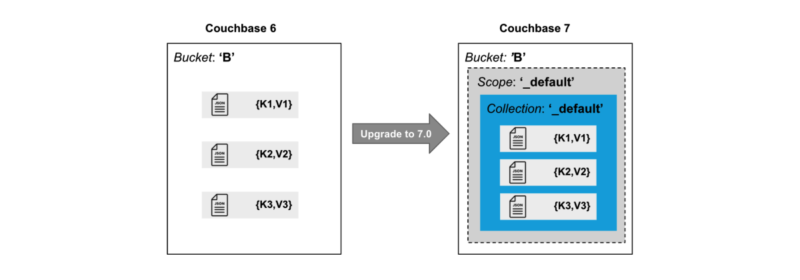Author

Reduce TCO By 10x Using Couchbase 7.1 For Large Multi-Terabyte Databases
Store hundreds of terabytes of JSON data and query in milliseconds with Couchbase 7.1. Our new storage engine in 7.1, Couchbase Magma, makes Couchbase the most cost-effective and performant database, lowering TCO. With Magma storage engine, Couchbase 7.1 becomes the...

How to Migrate to Scopes & Collections in Couchbase 7.0
Whether you’re new to Couchbase or a seasoned vet, you’ve likely heard about Scopes and Collections. If you’re ready to try them out for yourself, this article helps you make it happen. Scopes and Collections are a new feature introduced...

How Scopes & Collections Simplify Multi-Tenant App Deployments on Couchbase
Now it’s easier than ever to build and deploy microservices and multi-tenant applications on Couchbase. The 7.0 release introduces a new data organization feature called Scopes and Collections. Scopes and Collections allow logical isolation of different types of data, independent...

Intro to Collections – Dev Preview in Couchbase Server 6.5
Couchbase, a document database, allows great flexibility in storing different types of documents in a single bucket (bucket being the equivalent of a database). There is a frequent need to refer to documents of a similar type together e.g. an...

Understanding Distributed Multi-Document ACID Transactions
Couchbase CTO Ravi Mayuram announced Distributed Multi-document ACID Transactions in Couchbase Server 6.5. I highly recommend reading Ravi’s blog which highlights how Couchbase transactions are an innovative union of ACID guarantees with scale, high-availability, performance and flexibility. In this blog,...

Rebalance Improvements in Couchbase Server 6.5
Rebalance is a critical component of Couchbase architecture that allows for online cluster management operations including adding/removing nodes, online upgrades of hardware or software, and recovery after node failure. Couchbase Server 6.5 makes rebalance more robust, more manageable, and faster....

Couchbase – Better Scale-Out, Agility and High Availability than MongoDB
The NoSQL revolution was born in 2006 with the publication of the Google BigTable paper as internet scale applications could not get the performance, agility and availability they needed from relational databases like Oracle. The following are now key considerations...